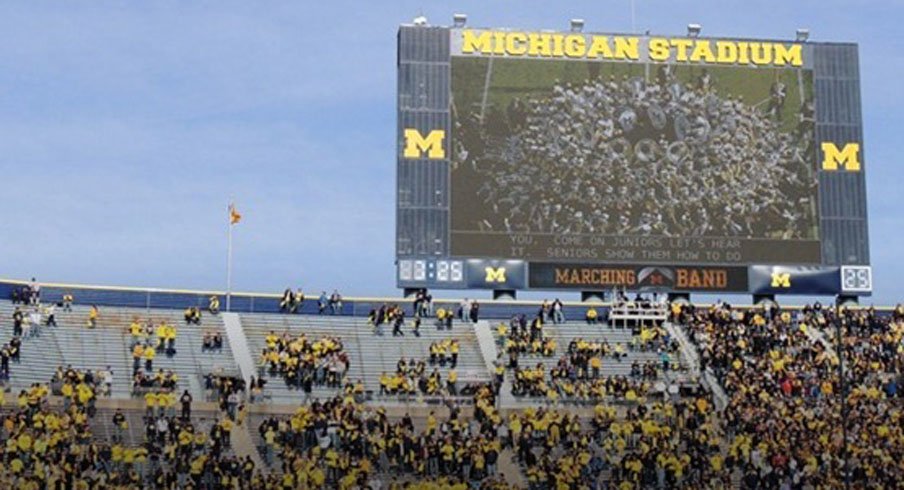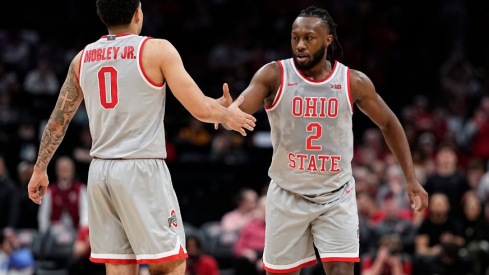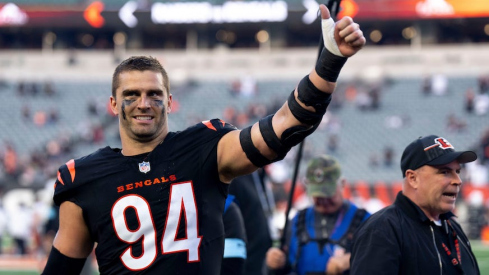Originally published on the author's blog. Reprinted here with the author's permission.
Last week, the Michigan athletic department admitted what many had long suspected: student football ticket sales are down, way down, from about 21,000 in 2012 to a projected 13,000-14,000 this fall.
The department has blamed cell phones, high-definition TV, and a sweeping national trend – but those don’t tell the whole story.
How’d Michigan lose so many students so fast? Answer: a lot of hard work.
Athletic Director Dave Brandon has often cited the difficulty of using cell phones at Michigan Stadium as “the biggest challenge we have.” But when Michigan students were asked in a recent survey to rank seven factors for buying season tickets, they ranked cell phones seventh — dead last.
What did they rank first? Being able to sit with their friends.
But Brandon did away with that last year, with his new General Admission seating policy. Instead of seating the students by class — with the freshmen in the endzone and the seniors toward the fifty, as they had done for decades – last year it was first come, first served. (They also raised the price to $295 for seven games, up from $195 for six games the year before.) The idea was to encourage students to come early, and come often. Thousands of students responded by not coming at all.
This was utterly predictable – and I predicted it, 13 months ago.
(This is probably as good a place as any to say, No, this is not about the department pulling my press pass. It’s not personal. It’s about misguided decisions and long-term consequences.)
TV networks loved showing blimp shots of the sold-out Big House – one of the iconic sights in college football. Now they don’t show any.
Working with student government leaders, the athletic department revised the policy for the 2014 season. But it was apparently too little, too late, as some 6,000 Michigan students decided to drop their tickets anyway.
“We know who our competitor is. Your 60-inch, high-definition TV.”
Insult to injury: college teams now play their biggest rivals on Thanksgiving weekend, when most Michigan students have gone home. If the students don’t love college football now, when it’s half-price, will they love it more when they’re paying twice that, plus a Personal Seat License?
“We know who our competitor is,” Brandon often says. “Your 60-inch, high-definition TV.”
If that’s true, maybe they shouldn’t have increased seat prices by an average of $100 each since Brandon took over. Perhaps they should stop charging six bucks for a hot dog, five bucks for popcorn, and four dollars for water. Maybe they should stop showing ads between plays on the big screens for corporate receptions at Michigan stadium, which start at $9,000. Fans can get all those things at home for less, including the ads. They can only get the marching band at the big house.
Survey after survey points the finger for lower attendance not at cell phone service or high definition TV, but squarely at the athletic department and college football itself. Fans are fed up paying steakhouse prices for junk food opponents — and junk food itself — while enduring endless promotions. The more college football caters to the TV audience at home, the more fans paying to sit in those seats feel like suckers.
Brandon said, “We all think of every home Michigan football game like a miniature Super Bowl.”
I don’t know any Michigan fans who think that. Quite the opposite, they think Michigan football games are the antidote for the artificial excess of the Super Bowl.
As I wrote in “Fourth and Long: The Fight for the Soul of College Football, in 2005, then-athletic director Bill Martin commissioned a survey which revealed more than 50-percent of Michigan season ticket holders had been buying them for more than two decades, but onlynine-percent of them also bought season tickets to any professional team. This tells us a basic truth: Michigan football fans don’t just love football. They love Michigan football—the history, the traditions, the rituals — the timeless elements that have grown organically over decades. They are attracted to the belief that Michigan football is based on ideals that go beyond the field, do not fade with time, and are passed down to the next generation — the very qualities that separate a game at the Big House from the Super Bowl.
After the 2013 Notre Dame game, Brandon said, “You’re a 17-18 year old kid watching the largest crowd in the history of college football with airplanes flying over and Beyonce introducing your halftime show? That’s a pretty powerful message about what Michigan is all about, and that’s our job to send that message.”
Beyonce is to Michigan football what Bo Schembechler is to — well, Beyonce.
Is that really what Michigan is all about? Fly-overs, blaring rock music, and Beyonce? Beyonce is to Michigan football what Bo Schembechler is to — well, Beyonce. No, Michigan is all about lifelong fans who’ve been coming together for decades to leave a bit of the modern world behind – and the incessant marketing that comes with it – and share an authentic experience fueled by the passion of the team, the band and the students. That’s it.
In his speeches, Brandon often mentions he was the CEO of three Fortune 500 companies. Then why doesn’t he know his customers, and what they want?
Yes, the department has always followed basic business practices. But it has never been run strictly as a business — until now. The proof is the wait list, which former athletic director Don Canham grew by the thousands. Canham was a millionaire businessman in his own right. If he wanted to “maximize revenue,” he knew he could increase the price to meet demand. But he didn’t, because he believed that would dispel the magic.
Brandon’s predecessor, Bill Martin, another self-made millionaire, introduced Personal Seat Licenses to the Big House, but only after the nation’s next 19-biggest stadiums had already done so. Even then, the PSL program was relatively moderate, he spared the fans in the endzones, and he lowered ticket prices after the 2008 recession. Michigan’s wait list remained robust.
“Just because you can charge them more,” Martin told me, “doesn’t mean you should. You’re not there to ring up the cash to the nth degree. It’s a nonprofit model!”
Again, from Fourth and Long: In Brandon’s first three years, he increased the operating budget from $100 million to $137.5. That does not include the building program, last estimated at $340 million. In Brandon’s defense, he also generated a $9 million surplus, and the buildings will benefit all Michigan’s teams, not just football and basketball. But his budget also includes: his million-dollar salary, three times what Bill Martin paid himself, plus a $300,000 annual bonus –adding to a 62-percent increase in administrator compensation; a 225-percent increase in “marketing, promotions and ticketing”; and a 500-percent increase in “Hosting, Food and Special Events.”
I’ve come to believe it’s not scandal that will bring down college athletics, but greed. How long can these numbers, fueled by increasingly unhappy fans, continue to skyrocket before they come crashing down to earth?
All that money comes from someone – and that someone is you, the fans. Tickets used to be underpriced, and you knew that when you scalped them for more than you paid. Now they’re overpriced, and you know that when you try to sell them through Michigan’s Official Scalper, Stubhub, and get far less.
The wait list is long gone. They’ve been sending waves of emails to former ticket holders to assure them, “The deadline has been extended!” Beg your former customers to come back five times, and you don’t have a deadline, and you don’t have a wait list.
This fall Michigan is in danger of breaking its string of 251-consecutive games with 100,000-plus paid attendance, which started in 1975. Treat your fans like customers long enough, and eventually they’ll start behaving that way, reducing their irrational love for their team to a cool-headed, dollars-and-cents decision to buy tickets or not, with no more emotional investment than deciding whether to go to the movies.
This fall Michigan is in danger of breaking its string of 251-consecutive games with 100,000-plus paid attendance, which started in 1975.
After a friend of mine took his kids to a game, he told me, “Michigan athletics used to feel like something we shared. Now it’s something they hoard. Anything of value they put a price tag on. Anything that appeals to anyone is kept locked away—literally, in some cases—and only brought out if you pay for it. And what’s been permanently banished is any sense of generosity.”
After Brandon became Michigan’s 11th athletic director in 2010, he has often repeated one of his favorite lines: “If it ain’t broke… break it!”
You have to give him credit: he has delivered on his promise.
John U. Bacon is the author of the national bestsellers Bo’s Lasting Lessons, Three and Out: Rich Rodriguez and the Michigan Wolverines in the Crucible of College Football and most recently, Fourth and Long: The Future of College Football. You can find him on Twitter at @Johnubacon.


